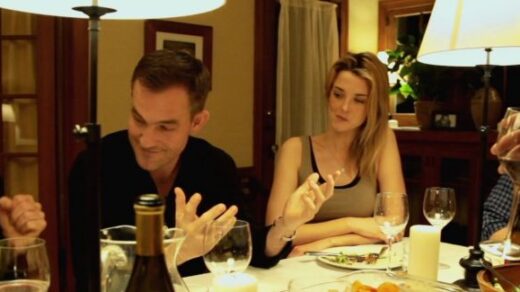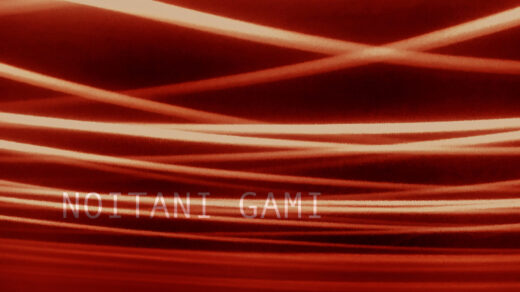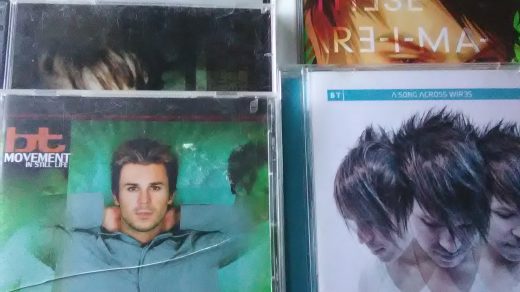Watching Ryuichi is like therapy
I’m watching Ryuichi Sakamoto walking around his studio. He’s tapping things, hitting things and running a violin bow over the edges of a gong. This is the film ‘Coda’ or ‘Ryuichi Sakamoto: Coda’ (2017) to avoid confusion with the hundreds of other people who have used this title.
Coda is a documentary following his creative process. A lot of time is spent in the home studio which seems to always be bathed in early morning light – not sure if it actually was but this is what I remember. I’ve also watched him attending protests, recording ice cracking and water flowing in the arctic and walking around Fukushima. I can’t remember if there was the sound of a geiger counter clicking as he walks though the ruins of the nuclear power plant but I hear one anyway. The sight of anyone in a white HazMat automatically triggers the sound in my head. This is probably the result of the many beautifully bleak dramas of the 80s – maybe Kraftwerk has something to do with it as well – who knows – they tend to have something to do with most things.
I wondering why I feel calmed by watching someone walk around a disaster zone.
The artistic process as Art:
I know it’s just a film but it’s so personal that I feel like I am occupying the space with him. This isn’t really the point of this post – so back to what I was saying a paragraph ago:
He’s been strolling around his studio creating sounds that would seem like a game if he didn’t look like he absolutely knew what he was doing. Every vibration, every resonating object, every click and ping and ringing sound is done with what looks like a mix of clarity of intention and, without it sounding like a contradiction, playful exploration.
After a while the film lets us hear what has been created and we watch the moment he plays back what he’s built. The music starts and swells – he looks to the camera – we wait – sounds drops and slide into something staggeringly beautiful – his expression changes to one I don’t think I’ve ever seen in a music documentary before – one of sheer joy. This is surprising to me – have I really not seen this before?
I’m thinking back quickly to all the shots I’ve seen of bands in studios – creating – rehearsing – recording mixing – posing – posturing. I’ve seen people punching the air – jumping up and down – high fives – deep drags on cigarettes and shouting things like ‘ Yes!! F*** yeah!!! Or knowing nods as if to say – ‘this is what we do – we are gods – get used to it’. Of course I’ve loved many documentaries like this but this is something purer, the sheer joy of the moment.
Serendipity can save you from yourself
Watching the joy of sound that was crafted with experience and the careful use of serendipity is a joy in itself. Not too sure if you can really ‘use’ serendipity – you can let it use you perhaps – but you still need to be aware of it. Serendipity is a strange thing – it tends to come from putting in the hours – although it has little to do with intention. It presents itself like a gift after spending stupid amounts of time working on a project – the thing is being awake enough to spot it. Sometimes it’s easy in the studio to become too obsessed with what we intended to do and not notice what is possible.
Anyway that was the key moment of the film for me – I can’t stop thinking about it – really that’s all there is and all there needs to be – when everything works, you know it – you feel the thrill of it – everything else is secondary. Even this moment is stronger and purer than when these sounds occur on the album in a more perfected form – it’s here that you can hear the heart of the sound.
Coda is a truly great documentary, slow, measured, and thoughtful. No talking heads going on about when they met Ryuichi or relating some anecdote in a weird hybrid of sincerity and media friendly presentation. This is just the artist doing whatever it is he feels like doing.
Music documentaries eat themselves:
Music documentaries have started to box themselves into a corner. I’ve started to lose track of the amount of times someone says something like ‘He always said he would be famous – and he was right!’ This is my favourite line to hate from most music docs. It’s a weird quantum style quote that makes no sense if you think about it for a second or two. Since pretty much everyone famous enough to be the subject of a mainstream music doc will have said “I’m going to be famous” then yes, it will be a true if pointless anecdote. It doesn’t matter that every unknown musician ever may have also said this at some point. If you are intending to become famous make sure you say this to someone you know so they can tell the anecdote if the chance ever arises.
He loves sound more than you, it’s true.
This is a documentary about the act of making something from where there was nothing before. Like all good films about musicians it becomes a visual representation of the music and in doing so takes on the personality of its subject. Ryuichi Sakamoto shows a profound love for the sound of things. You start to feel that no matter how much you think you love sound – he loves it more. Even when we are shown the usual ‘man in front of a monitor’ studio shots it feels special. Seeing the sound wave feels like you have been shown a beautiful secret code. This seems like a sound wave to take seriously, maybe to nod wisely at and perhaps empathise with. The film also has him wearing a blue bucket on his head capturing the sound of rain from inside a bucket (obviously). Process is everything.
This wasn’t a film review
It just comes to mind whenever I’m thinking of project, any project. Anyway – a short while after watching the film I put his 2017 album ‘async’ on repeat again – maybe everyone should – there’s a lot to process.
Follow me on instagram for images and little bits of magic spotted in the shadows or on the fringes of the frame.
https://www.instagram.com/tobiasdezaldua/
Follow me on Spotify/feed the algorithm:












